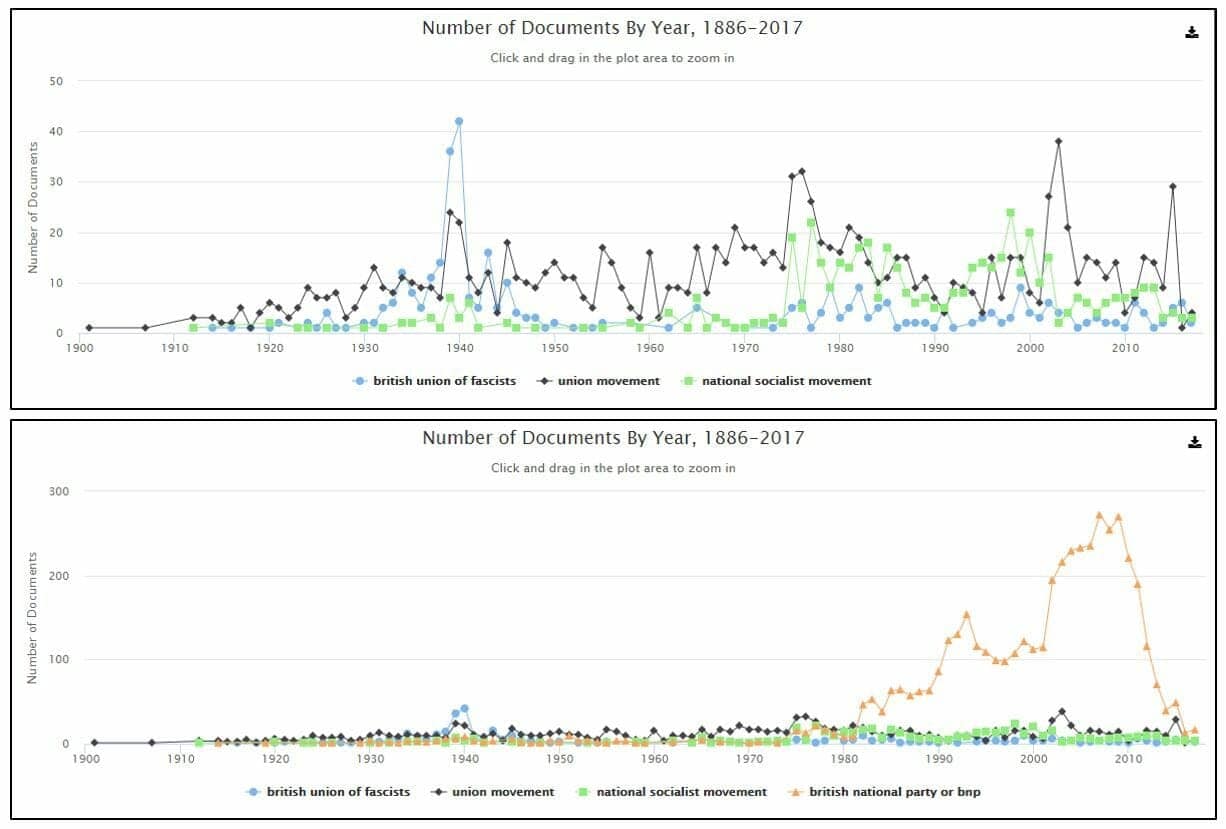│By Chris Houghton, Head of Digital Scholarship, Gale International│
Studying extremist groups has, sadly, never been more relevant or more important. Can text mining and data analysis be used to enhance this study, and potentially make discoveries that could help with the ongoing fight against political extremism? In this blog, I provide some suggestions of how scholars might benefit from utilising these research methods, by showing what can be uncovered by combining Gale’s Political Extremism and Radicalism archive with the Gale Digital Scholar Lab.

